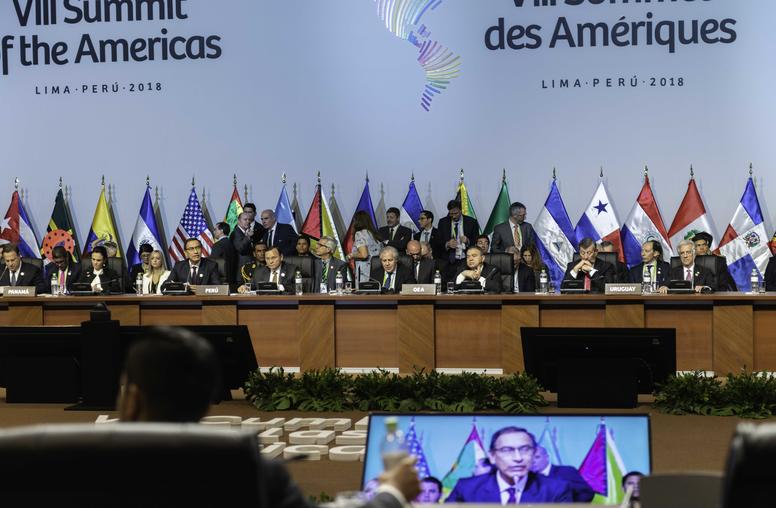The Institute, in partnership with the Inter-American Defense College and the Organization of American States' Unit for the Promotion of Democracy, held a seminar at Ft. McNair, Washington, DC for seventy-five senior government officials and military officers, including fifty-five students of the IADC.
The Institute, in partnership with the Inter-American Defense College and the Organization of American States' Unit for the Promotion of Democracy, held a seminar at Ft. McNair, Washington, DC for seventy-five senior government officials and military officers, including fifty-five students of the IADC. Twenty-six different countries from throughout the hemisphere were represented, including Canada and the US, as well as the OAS itself.
The USIP seminar was incorporated into the academic year for those students attending IADC's full year course, yet it was also designed as a stand-alone week for those coming to IADC for this course specifically. The participants brought rich and varied professional experiences and education to all interactive presentations and discussions. This was the third seminar of its kind conducted by USIP for IADC. The seminar consisted of presentations, exercises, and a simulation focusing on the nature of conflict, the cycle of conflict, improving and practicing skills for conflict analysis, problem solving, negotiation, and mediation.
The participant reaction was very positive and the USIP trainers, OAS staff, and IADC faculty received many spontaneous expressions of praise and satisfaction both from IADC students and College guests. Participants stated that the training would help them in their jobs.

